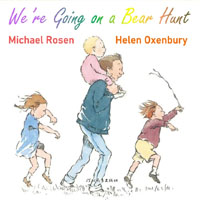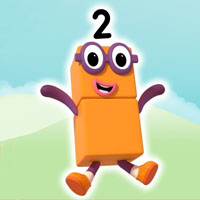
F2 Chestnut
Chestnut Class Spring 2 Overview
“I wonder what is happening now that it is spring”
Core Texts and Rhymes

- Make a fruit kebab using the fruits from the story. Count out the fruits you used.
- When out shopping look for the fruits in the supermarket, ask your child to find the apples or strawberries etc.
- Wriggle on the floor like a caterpillar, fly around the room like a butterfly.
- Sing the caterpillar song, sent home and shared on Tapestry
- Could you paint a butterfly by painting one side and folding the paper to make it symmetrical.You could also use other materials such as mud outside to make symmetrical splat patterns!
- Link to story narrated with Makaton signing
www.youtube.com/watch?v=kQNxBrONqaA

- Take a walk around the local area, park or gardens – look for plants that are growing, are there any new flowers appearing.
- Plant some seeds or bulbs together, encouraging your child to dig or fill a pot with compost. Water it together and watch it grow.
- Could you help an adult in the garden or help to water indoor plants with a watering can.?
- Sing the days of the week to The Adams family tune, Days ot f the week, click, click etc. There’s Monday and theirs Tuesday, Their’s Wednesday etc.
- Can you find any slugs or snails in your garden, on your way to school or at the park? Or if you’re ;lucky a caterpillar?
- Link to story being narrated
www.youtube.com/watch?v=23INhyreb8M

- Can your child start to show awareness of the number 4 in the indoor/outdoor environment e.g. house numbers, car registrations, in shops and on buses. Reinforce counting 4 objects, encourage them to point with their finger as you count.
- Match shapes that are the same and begin to categorise – square/rectangle e.g. shapes in your house e.g. coasters or picture frames
- Cut out some coloured shapes from paper, use these to make a shape collage.
- Notice patterns and start to arrange things by pattern
www.bbc.co.uk/iplayer/episodes/b08bzfnh/numberblocks - When singing rhymes, present numbers on fingers, showing fingers decreasing and re- counting when we take one away or add one.
Sleeping Bunnies
I’m a Little Teapot
The Grand Old Duke Of York
Watch Ganneys Meadow Staff Recordings of rhymes on Tapestry
Ideas to support children’s early phonological development
Listen to the sounds your child is making. Repeat them back. Add on a new sound.
If they say a word repeat it back to them and you can always add on a word.
Make sounds through tubes made of different materials e.g. plastic, paper, wood, cardboard
Make sounds banging different materials, maybe a pan and spoon or a stick on the fence etc.
Make speech sounds as you and your child are looking in the mirror, say rhymes looking into a mirror too.
Chestnut Class Autumn 2 Overview
“I wonder what we are celebrating?”
Core Texts and Rhymes

- Put on your wellies and go and stand or stomp in the thick oozy mud
- Use a torch to look around the room and track the light
- Visit a local forest/ park and walk through the swishy swashy grass
- To experience a snowstorm, throw scrunched up paper in the air for snowballs
Play hide and seek with Teddy Bears around the house - Link to story narrated with Makaton signing –
- Makaton Signed Story – WE’RE GOING ON A BEAR HUNT – Singing Hands
- Watch Mrs Russell / Mrs Harris read the story on Tapestry

- Take a stroll through the deep dark wood?
- Head to the park and role play the story. Look under log piles and behind trees. What can you see in the woods?
- Listen to Juila Donaldson sing the Gruffalo song using Makaton:
www.youtube.com/watch?v=qCdVP9Qq6HM - Make Gruffalo Crumble and other recipes:
GruffaloCrumblePartyPack” - Play and explore the Gruffalo website:
www.gruffalo.com - Watch Mrs Russell/Mrs Harris read the story on Tapestry

- Watch the story with Makaton signs (link below) Can you learn to sign; car, kite, ball, tiger, paint, trumpet and kitten?
- Can you move like a tiger and go roaring around the house?
- Throw a big ball and catch it. ‘My turn, your turn’ Try a smaller ball if you can throw and catch a big one. If this is tricky hit and catch a balloon
- Link to story being narrated with Makaton signing –
www.youtube.com/watch?v=99SARGoQoNc - Watch Mrs Russell/Mrs Harris read the story on Tapestry

- Can your child start to show awareness of the number 2 in the indoor/outdoor environment e.g. house numbers, car registrations, in shops and on buses?
- Support and encourage your child to begin to recognise the number 2 and show an interest in counting. Model counting the objects your child is counting with.
- Listen to and join in with number rhymes – 2 Little Dickie Birds
- Encourage your child to look at the dickie birds as they are counted and taken away
www.bbc.co.uk/iplayer/episodes/b08bzfnh/numberblocks
Rhymes
Incy Wincy Spider, Twinkle Twinkle Little Star, Pop Goes The Weasel, Two Little Dickie Birds
Nursery Rhyme Week:
Twinkle Twinkle, Old Macdonald, The Big Ship Sails, Incy Wincy Spider, 5 Currant Buns
When Santa Got Stuck Up The Chimney
- Sing/ recite rhymes at home: use resources from home learning packs to do this
- Watch Ganneys Meadow Staff Recordings of rhymes on Tapestry
- Watch rhymes sang with Makaton
- Twinkle Twinkle Little Star
www.youtube.com/watch?v=BOqRyedVJkg - Incy Wincy Spider
www.youtube.com/watch?v=SEXQZkgnfJ8
Ideas to support children’s early phonological development
Use rhymes and songs with words repeated in a string e.g. Row, Row, Row your boat. Clap, Clap, Clap your hands.
Say word strings – link with an object of interest e.g. blue block, green grass
Blow feathers, blow bubbles and listen to the quiet pop. Feel and hear them pop on your hand, knee, foot, head
Listen to the sounds the child is making. Repeat back. Add a new sound.
Make a speech sound, then add on another one and then another one to make a pattern e.g. e…i…o….s

